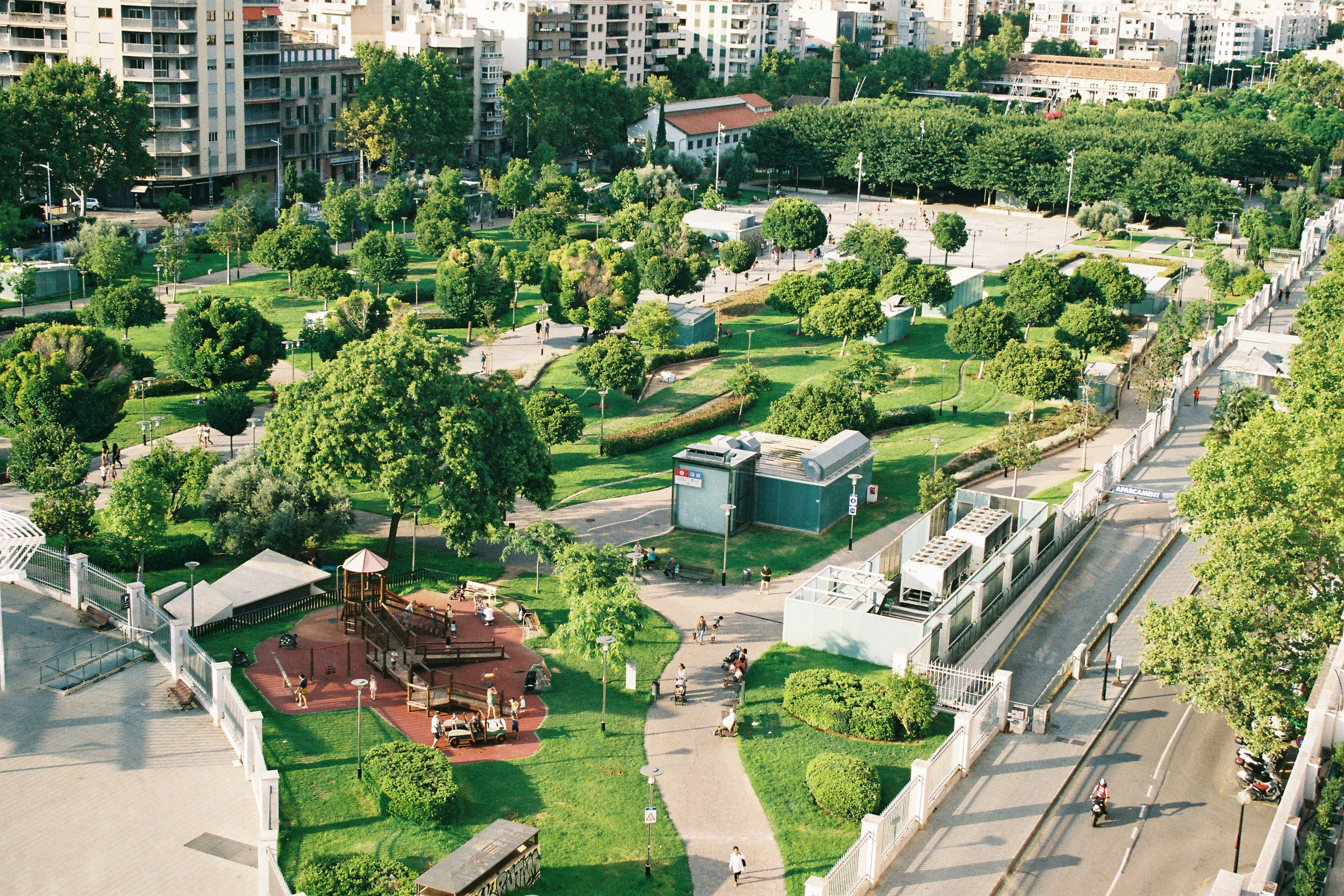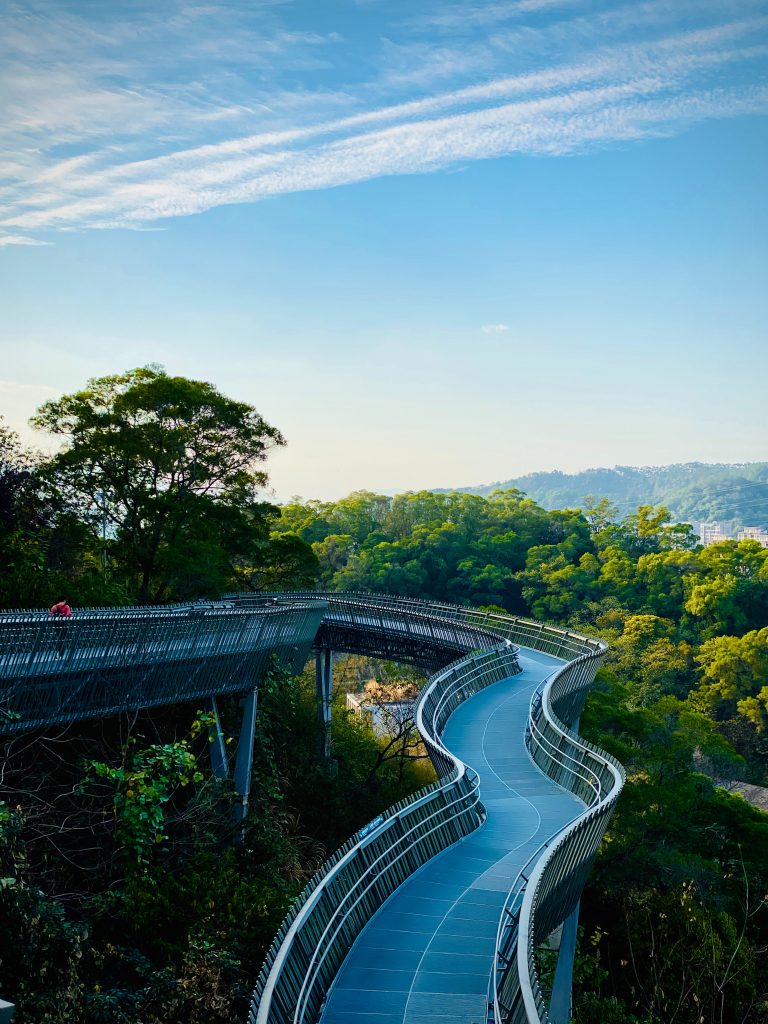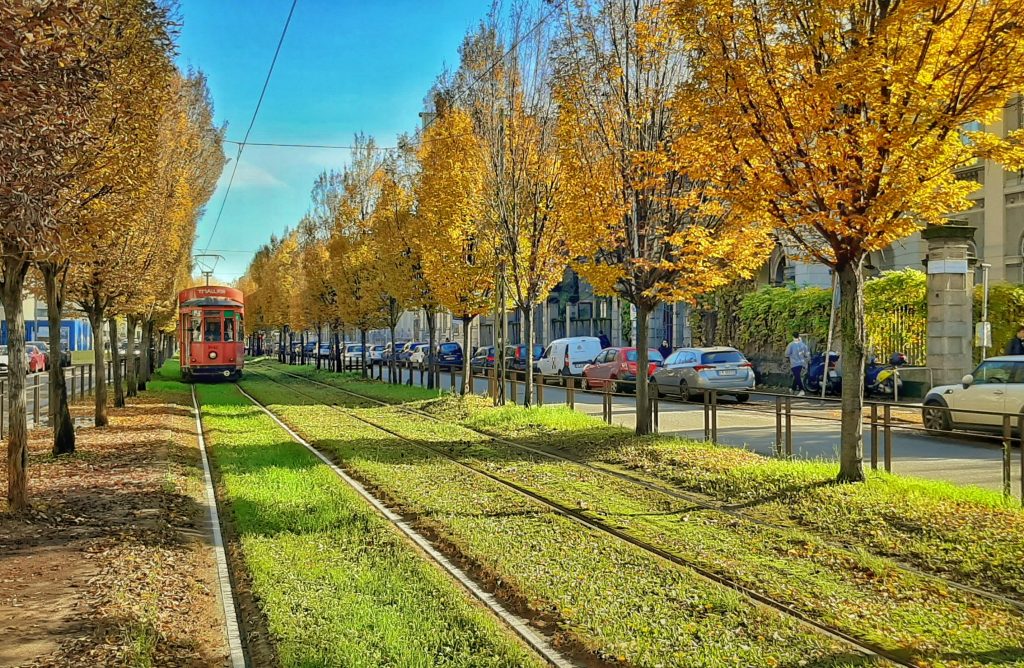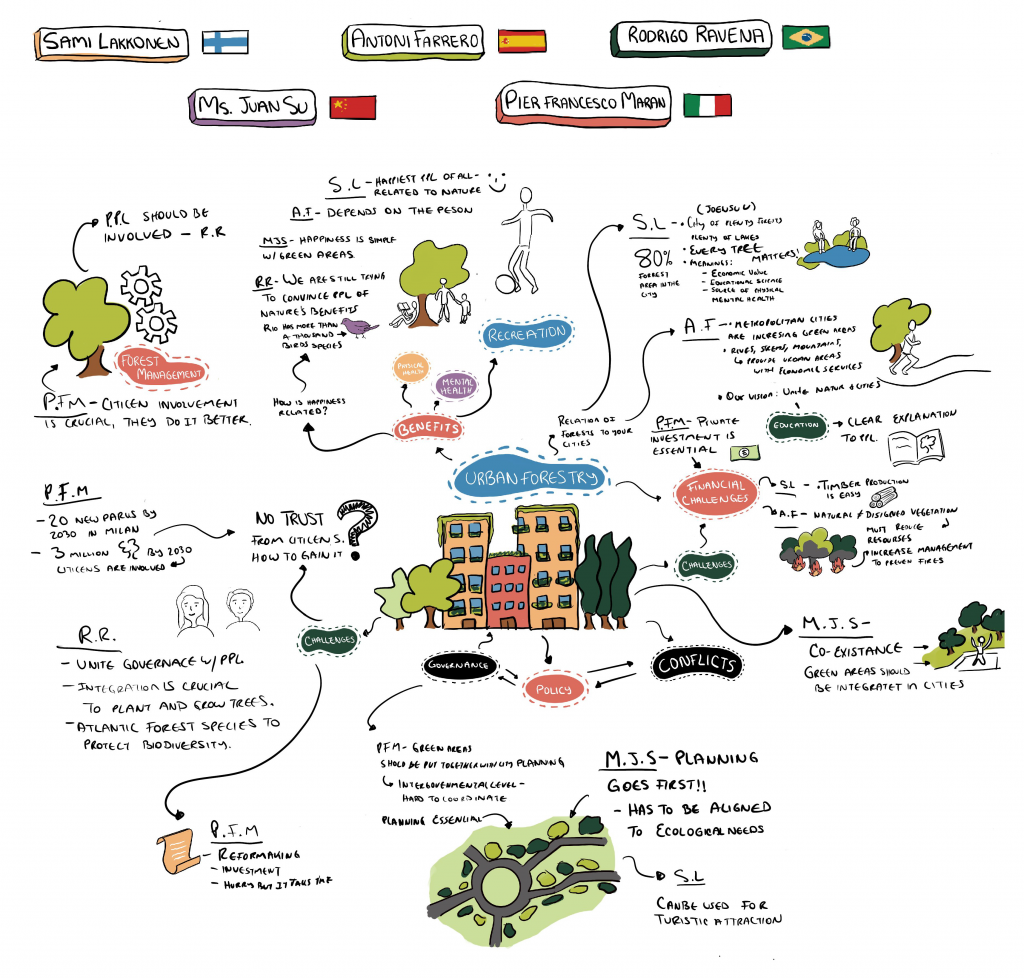
Urban Forests: a valuable tool for building metropolitan green areas
Recent trends show that more and more cities and metropolitan territories are turning to Nature-Based Solutions (NBS) to help develop more sustainable, resilient and healthy urban spaces. Urban Forests (UF) are a subset of Nature-Based Solutions that build on tree-based urban ecosystems to address societal challenges, simultaneously providing ecosystem services for human well-being and biodiversity benefits.
On 23 March, Metropolis held a session on the importance of urban forests for sustainable cities as part of the 2021 Urban Forestry Days. The event was co-organised with the European Forest Institute (EFI), the European Forum on Urban Forestry (EFUF) and the Horizon 2020 CLEARING HOUSE project.
The discussions, which were moderated by Oscar Chamat, Research and Policy Officer at the Metropolis Secretariat General, revolved around the benefits of urban and peri-urban forests. The debates also pointed to some challenging issues related to their development, the strong link between urban forests and the perceived attractiveness of a metropolitan area, and the importance of people’s engagement in building metropolitan green spaces.
Vision and approaches to urban forests
To kick off the session, Chamat asked participants to share how their respective administrations approach urban forests.
Sami Laakkonen, Strategy Director for Joensuu’s local government, explained that UF has strong links with the economy of Joensuu. Located in Eastern Finland, the city hosts the headquarters of the European Forest Institute, and is sometimes known as the “European Forest Capital”, as the forestry sector represents a turnover of almost two billion euros in the local economy.

Several participants spoke of UF as a sustainability driver. Guirong Tong, Director of the Fuzhou Forestry Administration, stated that UF is “a pillar for Fuzhou’s administration in planning and developing a sustainable city, as without it, the whole ecosystem surrounding Fuzhou would be lost.” “Trees and forests are life”, continued Rodrigo Ravena, Chief of Staff of the Secretary of Green and Environment of São Paulo: “Developing urban forests is about providing a better urban environment and enhancing the quality of life of our citizens.”
For the Barcelona Metropolitan Area (AMB), “the vision is to blur the boundaries between urban and nature, providing the metropolis with a wide range of ecological, social, cultural, and financial eco-services”, stated Antoni Farrero, Technical Management Office Coordinator at the AMB. The representative from Milan, Pierfrancesco Maran, Deputy Mayor for Urban Planning, Green Areas and Agriculture, shared Milan’s approach in planning UF, treating it “not only as a green policy, but more like an industrial one.” His comments echoed one of the findings of the new Metropolis Issue Paper “Bringing nature back to the metropolis for all”, where authors stressed the importance of recognising urban greening as an action that is not isolated from other urban planning interventions.
Community engagement in a greener urban environment
All the panellists mentioned that community engagement is crucial in efforts to build and maintain a greener urban environment. In Milan, the recent Green Plan drawn up by the local government to build 20 new parks in the city by 2030 received strong support from the population, not only politically but also economically: the city opened up donations for individuals to finance the Green Plan and received more than €500,000 in donations from civil society. This money will be used to help fund planting trees—the city wants to plant 3 million by 2030. “People have to look at urban forests as something that is important in their own lives”, mentioned Ravera, whose department is surveying the opinions of São Paulo citizens living in the areas to be ‘regreened’ and inviting them to take part in the planting process. “Greening cities is more than just planting trees. Planning and citizen engagement in this process is fundamental for Urban Forests to truly be an asset—not only for cities, but also for the people living in them”, added Ravera.

Urban practitioners are increasingly optimistic, as people’s awareness on the need for UF keeps rising. “As our metropolitan areas keep growing, every day more and more citizens are realising the importance of having more green spaces accessible to them in these areas”, mentioned Farrero from the Barcelona Metropolitan Area. “Citizens want to see something green when they open their window, or be able to walk to a park near their home”, Tong continued, mentioning recreational activities as one of the benefits that UF offer citizens, highlighting the importance of community engagement with these spaces.
Urban Forests and the economy
As demonstrated by the Joensuu example, UF can also serve as a force for enhancing the attractiveness and competitiveness of a metropolitan area. “UF is like a business card” for Fuzhou, said Tong, “it helps us create a better business environment and attract business, as people are more enthusiastic living in a greener city.” Echoing his colleague from Fuzhou, Ravera commented on the increasing property value in the areas of São Paulo that have seen recent green interventions.
Using the work carried out in the Barcelona Metropolitan Area as an example, Farrero highlighted the need to find a balance between UF and natural forests surrounding urban areas, calling attention to the term ‘smart forest’ proposed by Chamat: “Some solutions can be costly if they are not carried out from the right approach”.
The insights of the speakers show how Urban Forests can be a valuable tool in managing recent urbanisation trends, echoing research from the EU Horizon 2020 CLEARING HOUSE project. Nevertheless, it is also important to keep in mind that a green urban development has to be looked at from the perspective of environmental justice. Approaches should be adopted that go beyond direct impacts, such as improved air quality, and look also at providing equitable access to environmental resources for everyone, regardless of race, ethnicity, income, age or gender, so that a greener metropolis is greener for all its inhabitants.
Author: Guillaume Berret from Metropolis
Metropolis is the focal point of expertise on metropolitan governance. Raising the voices of metropoles on the global agenda and building capacity to deliver public policies and services, Metropolis contributes to finding common answers to the challenges of metropolisation.

